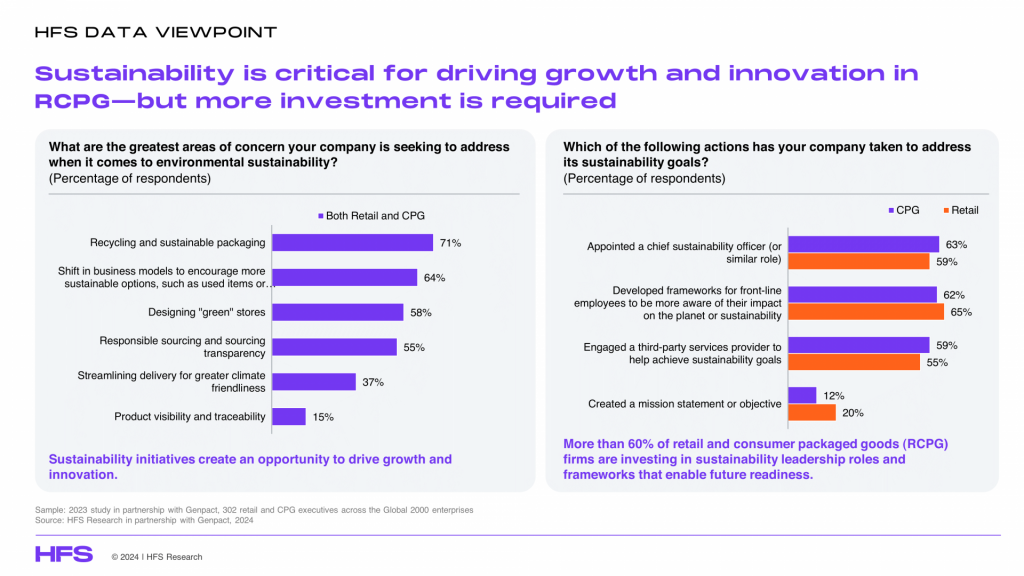
Consumer buying behavior and values are profoundly shifting toward creating a more sustainable future for the planet. Consumers are opting for sustainable products and choosing brands that have sustainable strategies. This shift in consumer buying is reshaping the retail and consumer packaged goods (CPG) business landscape, as we learned in a recent study in partnership with Genpact.
- Recognizing the significance of sustainability as a business imperative, enterprises have started investing to improve sustainable practices. Enterprise leaders are aware that implementing sustainability strategies will help enterprises increase efficiency, brand recognition, and revenue growth. However, the study revealed that nearly 60% of retail and CPG enterprises have developed roles such as Chief Sustainability Officer, designed frameworks for employee awareness, and engaged with third-party service providers to pursue sustainability goals effectively. The remaining 40% still fail to create effective strategies to integrate sustainability seamlessly into their business operations.
- Enterprise retail and CPG leaders face challenges in integrating sustainability into operational practices. The study found that 70% of retail and CPG leaders stated that they are struggling to find solutions for recycling and sustainable packaging, and 67% are challenged by the shift in business models to encourage more sustainable options, such as used items or rental products. Several other factors contribute to sustainability failure, including supply chain complexity, a lack of resources and change management, a lack of long-term strategic planning, a lack of metrics and reporting standards, regulatory concerns, and pressure on pricing and costs.
- Retail and CPG enterprises must leverage enterprise data to set their clear sustainability goals, identify sustainability opportunities, plan a sustainable strategy, and create a roadmap, ensuring that it aligns with the strategic plan and tracks performance. It is also important for enterprise leaders to develop a partner ecosystem that holds and meets the importance of environmental standards. Sustainability surely needs a long-term strategic plan; only enterprises with strong long-term commitment can achieve this.
The Bottom Line: It is high time for retail and CPG leaders to take serious action steps toward creating a sustainable future to retain their eco-concerned customers. While investments have begun, much more work remains to be done.
Buying sustainable products or choosing products from companies aligned with sustainable strategies is not just a trend. Enterprises failing to match this consumer demand for sustainability will lag behind the competition. Companies prioritizing integrating sustainability into their core values will increase their loyal customer base and position themselves for long-term success.
